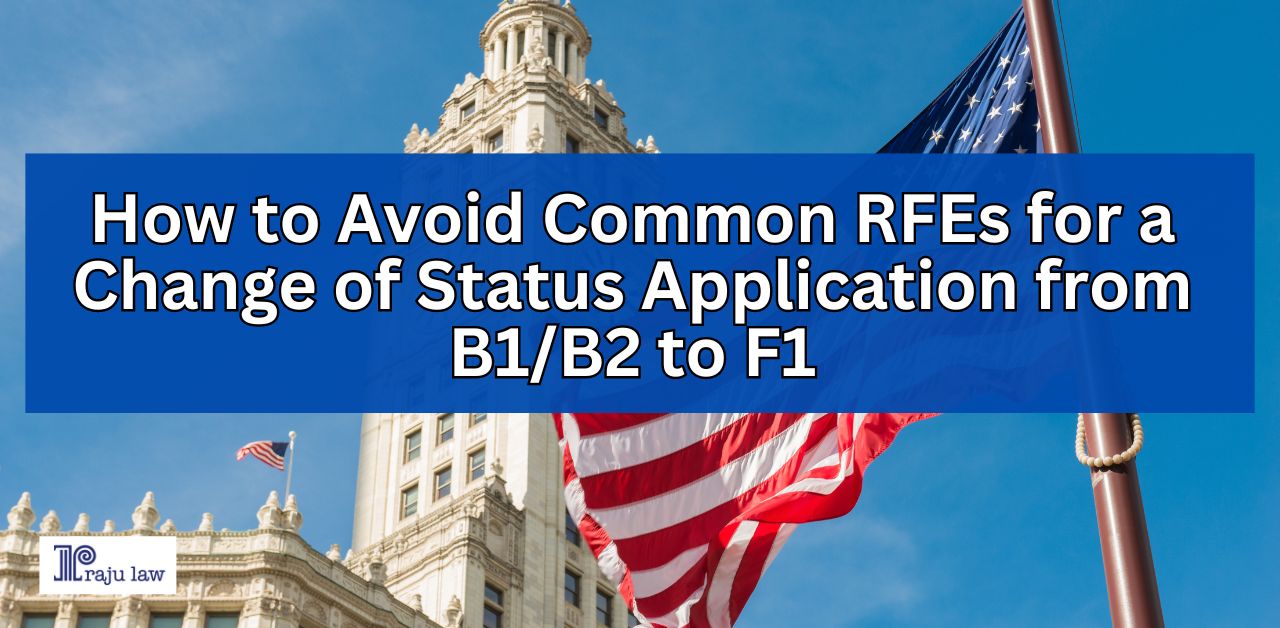Every year, many people come to the United States with a B-1/B-2 visa (visitor visa). As they explore the country during their stay, they often become fascinated by the advanced nature of the American education system. The quality of education in the USA is undoubtedly one of the best globally, making the transition to a student visa (F-1) highly desirable for many of these nonimmigrant residents.
However, one common hurdle applicants encounter during this application is receiving a Request for Further Evidence (RFE) from the USCIS. These requests often require additional documentation before a final decision can be made on the application. To help you navigate this process smoothly, we suggest that you be aware of some key points and avoid common RFEs.
Lapsed I-20/Program Start Date:
A properly signed and valid Form I-20 is crucial for an F-1 visa application. One of the most common reasons for receiving an RFE is a lapsed I-20 with an expired program starting date. In some rare cases, the applicant receives RFE for not properly signing the I-20 with a date. To prevent this, always ensure you have a valid, properly signed Form I-20 with a program start date that allows you to join your intended program promptly after approval. If time is a concern, consider opting for premium processing to expedite your application and reduce the risk of an RFE due to a lapsed I-20.
Ability to Pay Tuition and Living Expenses:
Demonstrating sufficient funds to cover tuition fees and living expenses is a vital requirement for an F-1 visa. It’s advisable to show funds available for at least two years of study. If this isn’t feasible, demonstrating funds for one year may suffice. If necessary, sponsorship from family, relatives, or friends can be sought. Ensure all financial documents are translated into English and that balances are converted into US currency.
Maintenance of B-1/B-2 Status:
The USCIS may request evidence of how you maintained your B-1/B-2 status at the time of applying for the change of status. Providing evidence like photos of tourism or business activities in the USA, along with travel tickets or certificates from conferences attended during your visit, can help satisfy this requirement.
Residence Abroad:
During the change of status application, you need to provide adequate evidence that you have a residence in a foreign country. This is necessary to prove that you are seeking to stay in the USA temporarily and solely to pursue studies and will leave the USA once your study ends. Documents such as a national ID card, national certificate, employment ID cards, No Objection Certificate (NOC) from your employer, photos with family members, letters from your parents, proof of property ownership or rental agreements, copies of utility bills, etc., can support your case. Explain clearly how your responsibilities in your home country will be managed during your absence to strengthen your application.
Remember, RFEs can cause delays in the application process, so submitting your initial application with complete and accurate documentation is crucial. By understanding these common pitfalls and taking proactive steps to address them, you can increase the likelihood of a successful change of status application from B-1/B-2 to F-1.

